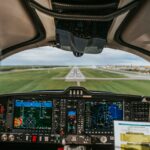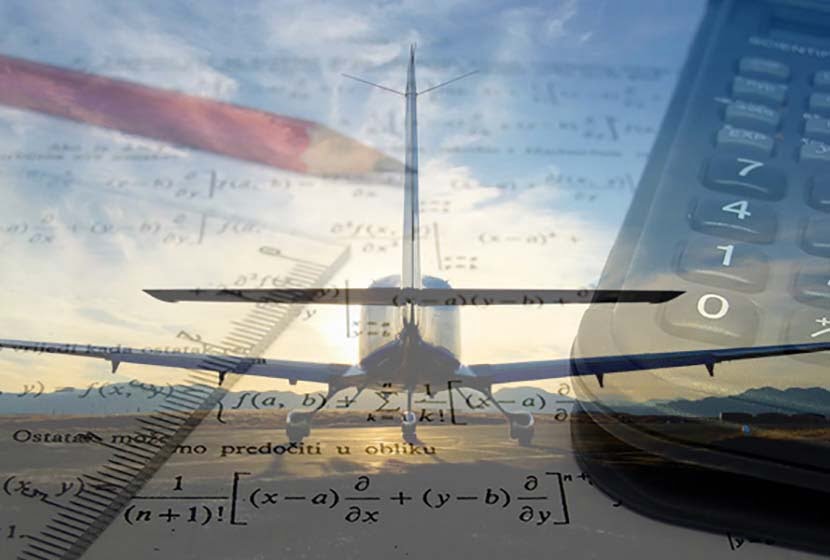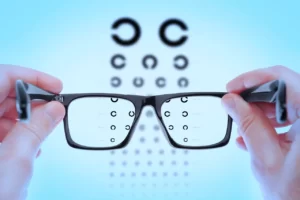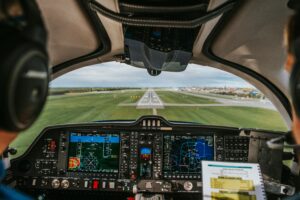Aspiring pilots often wonder if they need to be good at math in order to succeed in their career. The short answer is yes, math skills are an important part of being a pilot. However, it’s important to note that the math needed for a career as an airline pilot is not necessarily advanced math. In fact, many of the math skills used by pilots can be learned in high school.
The Importance of Math Skills for Pilots
To understand why math skills are important for pilots, it’s helpful to consider the various tasks that pilots must perform on a daily basis. One of the most important tasks is weight and balance calculations. This involves determining the weight of the aircraft, the weight of the fuel and passengers, and the distribution of this weight across the aircraft. These calculations are necessary to ensure that the aircraft is safe to fly and is within the limits set by the manufacturer.
To perform weight and balance calculations, pilots need to be able to perform basic arithmetic, including addition, subtraction, multiplication, and division. They may also need to use a rule of thumb, which is a rough estimate based on experience or past practice, to make quick calculations. While these calculations may not be particularly difficult, they must be performed accurately on a daily basis, so it’s important for pilots to have a good foundation in math.
In addition to weight and balance calculations, pilots may also need to use math skills when performing navigational calculations or when working with flight plans. While many of these calculations can be done using specialized software or calculators, it’s still important for pilots to have a good understanding of the underlying math principles.
So, do you need to be good at math to be a pilot? The answer is yes, but it’s important to note that being good at math does not necessarily mean being a math genius. Many of the math skills needed for a career as a pilot can be learned in high school, and with some practice and dedication, anyone can become proficient in the math skills required for this career.
It’s worth noting that while math skills are important for pilots, they are not the only factor that determines whether someone will be a good pilot. Pilots also need to have strong problem-solving skills, good communication skills, and the ability to work well under pressure. All of these skills are important for ensuring the safety of passengers and crew, and for making sound decisions in the cockpit.
What grade do I need in Maths?
The specific grade that you need in math will depend on the requirements of the specific pilot training program or airline that you are applying to. Some pilot training programs may require applicants to have a certain grade in math in order to be eligible, while others may not have any specific math requirements.
In general, it’s a good idea to have a strong foundation in math in order to pursue a career as a pilot. This typically means having a solid understanding of basic arithmetic, as well as a good grasp of algebra and geometry. Many pilot training programs and airlines may expect applicants to have completed at least high school-level math courses, if not more advanced math courses.
Examples of Pilot Maths Calculations
Pilots use math on a daily basis in order to perform various tasks and ensure the safety of their passengers and crew. Some examples of pilot math calculations include:
-
- Weight and balance calculations: Pilots must determine the weight of the aircraft, the weight of the fuel and passengers, and the distribution of this weight across the aircraft. This involves performing basic arithmetic calculations.
-
- Navigation calculations: Pilots may use math to calculate their position, speed, and altitude, as well as to plot a course and estimate their arrival time. This may involve using formulas to convert between different units of measurement and to calculate distances.
-
- Flight planning calculations: Pilots use math when creating a flight plan, which includes calculating the fuel needed for the flight, the takeoff and landing speeds, and the required navigation calculations.
-
- Altitude and distance conversions: Pilots may need to convert between different units of measurement when calculating altitudes and distances. For example, they may need to convert feet to meters or nautical miles to kilometers.
-
- Fuel calculations: Pilots must ensure that they have enough fuel for their flight, which involves calculating the fuel burn rate and the distance that the aircraft can travel on a given amount of fuel.
Overall, while these calculations may not be particularly difficult, it’s important for pilots to have a good foundation in math in order to perform them accurately and efficiently.
So, if you’re considering a career as a pilot and you’re worried about your math skills, don’t let that hold you back. While math is an important part of being a pilot, it’s not the only factor that determines whether someone will be a good pilot. With some practice and dedication, you can develop the math skills needed for this career, and with the right combination of skills and experience, you can become a successful airline pilot.








